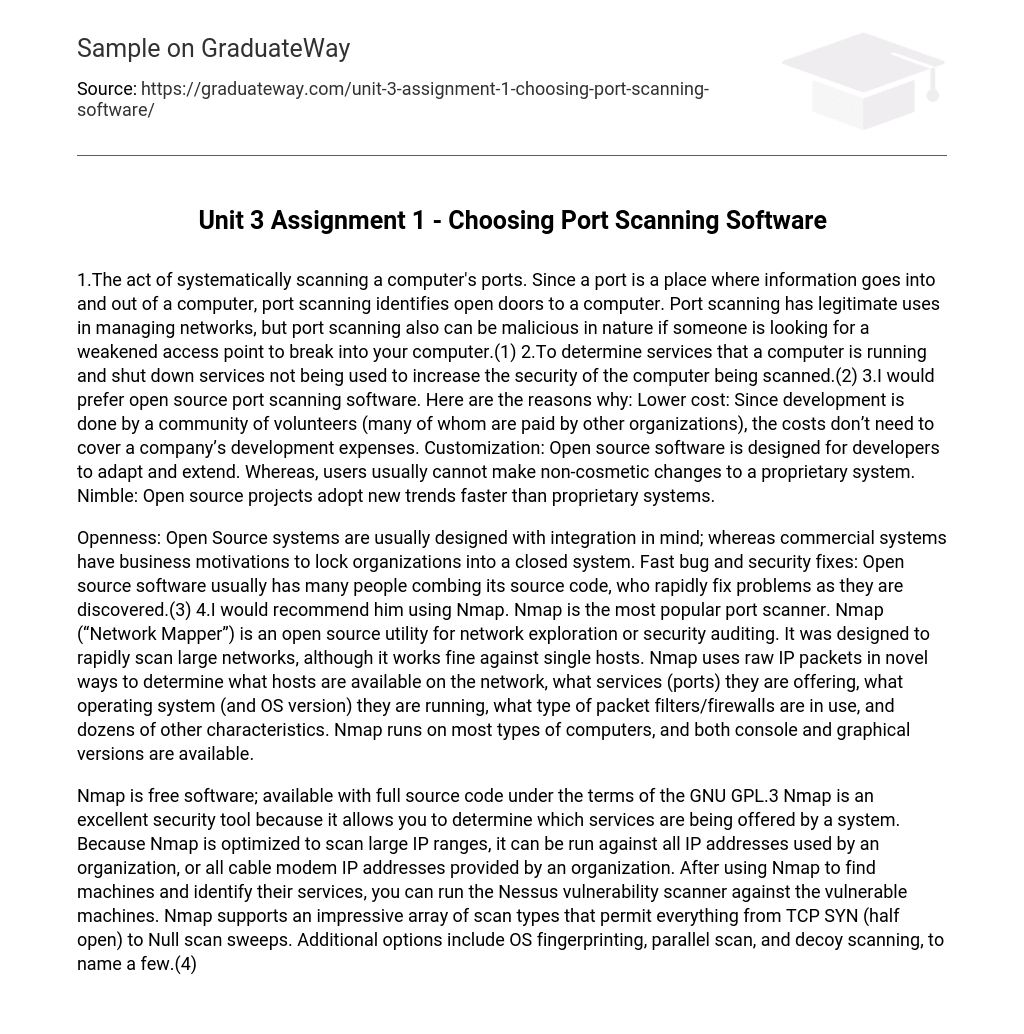1.The act of systematically scanning a computer’s ports. Since a port is a place where information goes into and out of a computer, port scanning identifies open doors to a computer. Port scanning has legitimate uses in managing networks, but port scanning also can be malicious in nature if someone is looking for a weakened access point to break into your computer.(1) 2.To determine services that a computer is running and shut down services not being used to increase the security of the computer being scanned.(2) 3.I would prefer open source port scanning software. Here are the reasons why: Lower cost: Since development is done by a community of volunteers (many of whom are paid by other organizations), the costs don’t need to cover a company’s development expenses. Customization: Open source software is designed for developers to adapt and extend. Whereas, users usually cannot make non-cosmetic changes to a proprietary system. Nimble: Open source projects adopt new trends faster than proprietary systems.
Openness: Open Source systems are usually designed with integration in mind; whereas commercial systems have business motivations to lock organizations into a closed system. Fast bug and security fixes: Open source software usually has many people combing its source code, who rapidly fix problems as they are discovered.(3) 4.I would recommend him using Nmap. Nmap is the most popular port scanner. Nmap (“Network Mapper”) is an open source utility for network exploration or security auditing. It was designed to rapidly scan large networks, although it works fine against single hosts. Nmap uses raw IP packets in novel ways to determine what hosts are available on the network, what services (ports) they are offering, what operating system (and OS version) they are running, what type of packet filters/firewalls are in use, and dozens of other characteristics. Nmap runs on most types of computers, and both console and graphical versions are available.
Nmap is free software; available with full source code under the terms of the GNU GPL.3 Nmap is an excellent security tool because it allows you to determine which services are being offered by a system. Because Nmap is optimized to scan large IP ranges, it can be run against all IP addresses used by an organization, or all cable modem IP addresses provided by an organization. After using Nmap to find machines and identify their services, you can run the Nessus vulnerability scanner against the vulnerable machines. Nmap supports an impressive array of scan types that permit everything from TCP SYN (half open) to Null scan sweeps. Additional options include OS fingerprinting, parallel scan, and decoy scanning, to name a few.(4)





